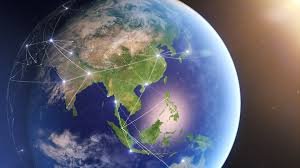The Evolution of Global Politics: Key Trends and Events Shaping the World in 2024
1. Introduction to Global Political Trends
Global politics in 2024 is characterized by shifting power dynamics, emerging geopolitical challenges, and evolving alliances. Understanding these trends is crucial for grasping the current international landscape and predicting future developments. This article examines key trends and events shaping global politics, highlighting their implications for the international community.
2. Key Trends in Global Politics
- Rising Geopolitical Tensions: The geopolitical landscape in 2024 is marked by increased tensions between major powers. The relationship between the United States and China remains a focal point, with ongoing disputes over trade, technology, and territorial claims. The Russia-Ukraine conflict continues to influence European security and international relations, with implications for NATO and global energy markets. Additionally, tensions in the South China Sea and Taiwan Strait contribute to regional instability and heightened global concerns.
- Shift Towards Multipolarity: The global power structure is shifting from a unipolar world dominated by the United States to a more multipolar landscape. China and India are emerging as significant global players, with increasing influence in economic, political, and military arenas. The rise of regional powers and the strengthening of organizations such as the European Union (EU) and the African Union (AU) reflect a more diverse and multipolar world order. This shift is reshaping global alliances and influencing international diplomacy.
- Climate Change and Environmental Policy: Climate change continues to be a critical issue in global politics, with increasing emphasis on environmental sustainability and climate action. In 2024, nations are grappling with the impacts of climate change and implementing policies to address environmental challenges. The Paris Agreement remains a central framework for international climate cooperation, with countries working towards achieving their climate targets and transitioning to renewable energy sources. Environmental issues are also influencing geopolitical strategies, as nations seek to secure resources and mitigate the effects of climate change.
- Technological Advancements and Cybersecurity: Technological advancements, including artificial intelligence, cybersecurity, and digital infrastructure, are becoming central to global politics. Nations are investing in technological capabilities to enhance security, economic competitiveness, and strategic influence. Cybersecurity threats and digital espionage are emerging as critical concerns, with countries focusing on protecting their information infrastructure and countering cyberattacks. Technological innovation is also shaping geopolitical rivalries and influencing international relations.
3. Significant Events and Developments
- U.S. Presidential Election: The outcome of the 2024 U.S. presidential election has significant implications for global politics. The election results will shape U.S. foreign policy, trade relations, and international alliances. The policy priorities of the newly elected president will influence global issues such as climate change, security, and economic cooperation.
- China’s Belt and Road Initiative: China’s ambitious Belt and Road Initiative (BRI) continues to expand, with significant investments in infrastructure projects across Asia, Africa, and Europe. The BRI aims to enhance global connectivity and economic integration, but it also raises concerns about debt dependency and geopolitical influence. The initiative’s progress and impact on global trade and regional dynamics will be closely monitored in 2024.
- European Union’s Strategic Autonomy: The European Union is pursuing a strategy of strategic autonomy, seeking to enhance its geopolitical influence and reduce dependency on external powers. This includes strengthening defense capabilities, pursuing independent trade agreements, and enhancing technological innovation. The EU’s efforts to assert itself on the global stage will influence its relations with major powers and its role in international diplomacy.
- Emerging Regional Conflicts: Regional conflicts and instability continue to shape global politics. Developments in the Middle East, including tensions between Iran and its neighbors, and conflicts in Africa, such as the situation in the Sahel region, impact global security and humanitarian efforts. International responses to these conflicts will influence geopolitical dynamics and humanitarian policies.
4. Challenges and Future Outlook
The evolving global political landscape presents several challenges:
- Diplomatic Tensions and Conflict Resolution: Managing diplomatic tensions and resolving conflicts require effective international cooperation and diplomacy. The increasing complexity of global issues necessitates multilateral approaches and dialogue among nations to address disputes and find common ground.
- Economic Disparities and Development: Economic disparities and development challenges continue to affect global politics. Addressing inequality and promoting sustainable development are essential for fostering stability and cooperation among nations.
- Global Governance and Multilateralism: Strengthening global governance and multilateral institutions is crucial for addressing global challenges and promoting international cooperation. Reforming organizations such as the United Nations and enhancing their effectiveness will be important for managing global issues and ensuring equitable representation.
In conclusion, global politics in 2024 is characterized by shifting power dynamics, rising geopolitical tensions, and emerging trends in technology and environmental policy. Understanding these developments is essential for navigating the complexities of international relations and addressing the challenges and opportunities that lie ahead. As the global political landscape continues to evolve, nations must work together to address pressing issues and shape a stable and prosperous future.











